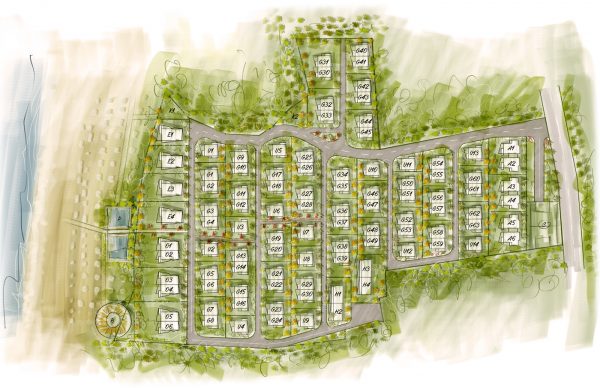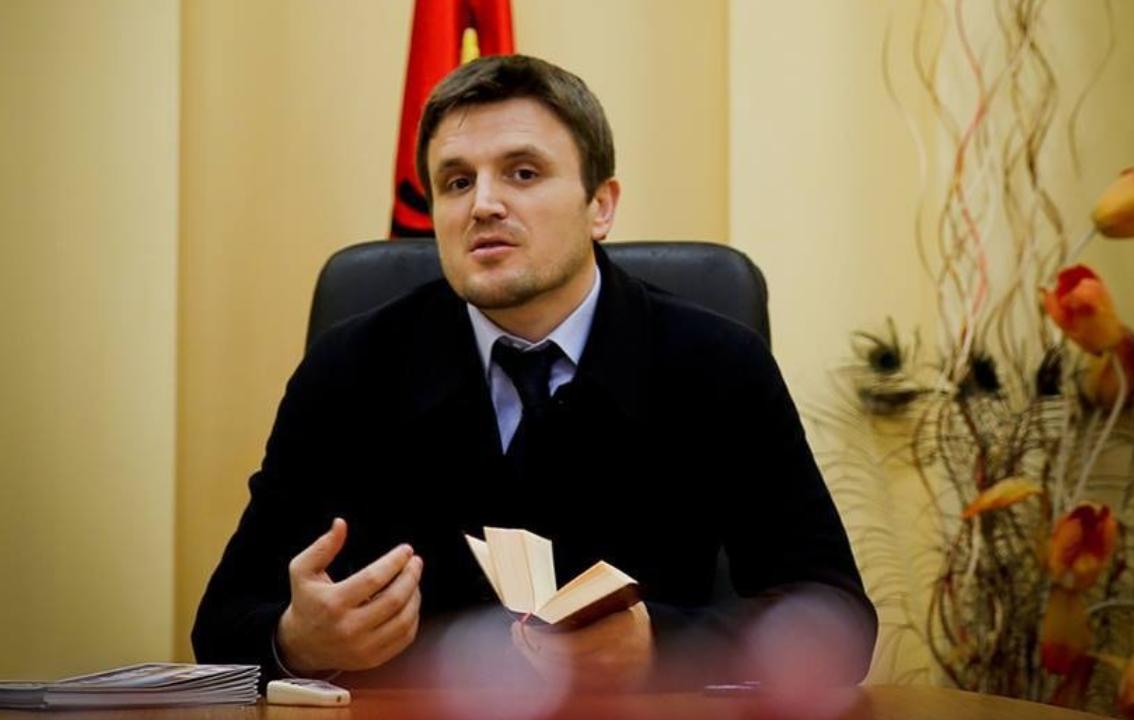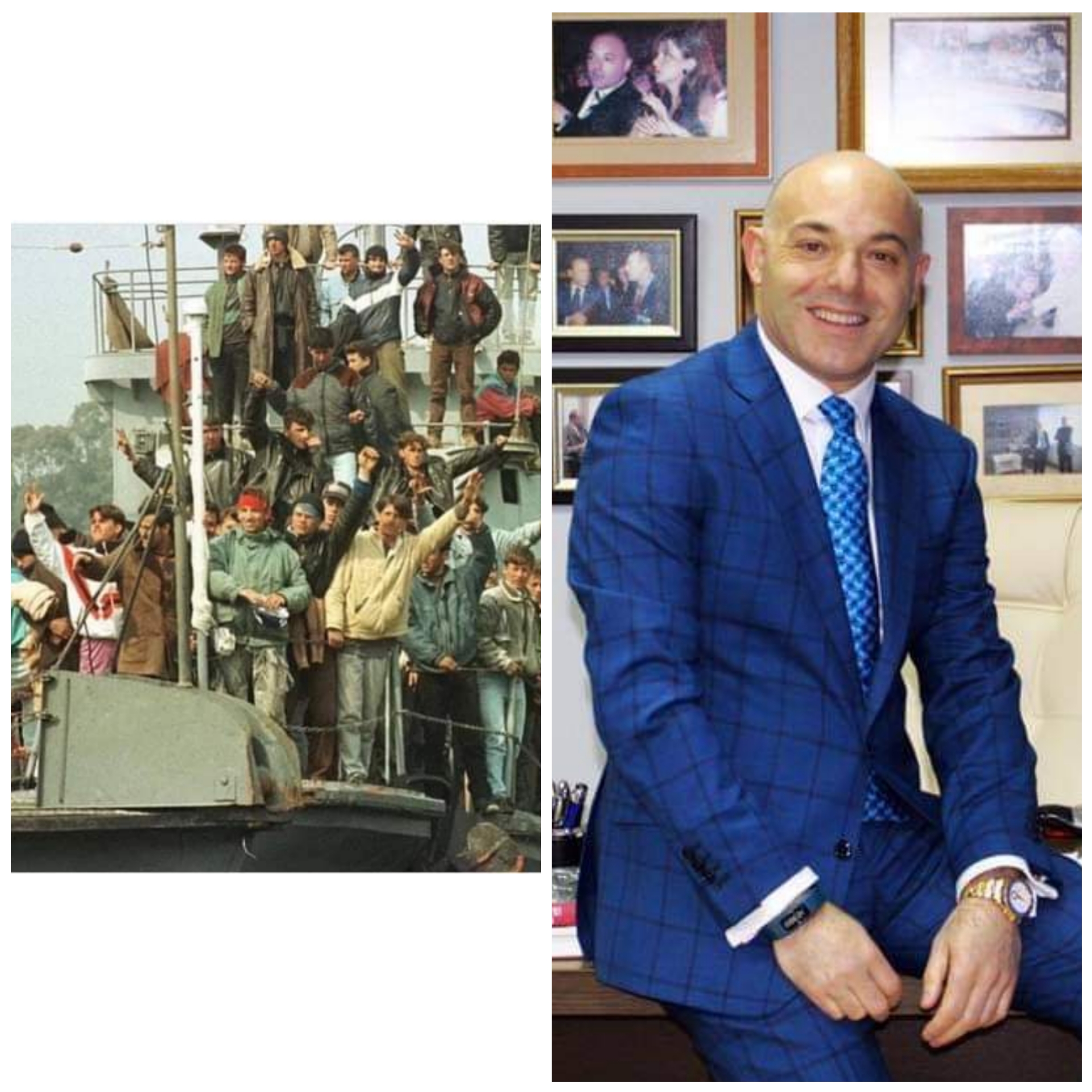Albana Celepija ka kryer studimet Bachelor dhe Master pranë Fakultetit të Shkencave të Natyrës në Tiranë në degën e Informatikës. Pas diplomimit me rezultate të larta ka filluar punë si zhvilluese softueresh (software developer) pranë kompanisë software house AT Consulting në Tiranë.
Aktualisht ajo është Software Engineer pranë institutit kërkimor Bruno Kessler Foundation në Itali dhe bën pjesë në qendrën e Co-Innovacionit, një iniciativë e përbashkët mes aktorëve kryesor të industrisë së teknologjisë dhe hulumtimit shkencor. Në këtë rol ajo kontribuon në dizenjimim dhe implementimin e komponenteve të cilat mundësojnë hapjen dhe ndërveprimin e të dhënave dhe shërbimeve dixhitale për entet publike dhe për qytetarët.
Puna në këtë institucion i ka dhënë mundësinë të analizojë dhe përkthejë rezultatet studimore në impakt për komunitetin falë transformimit dixhital të shërbimeve që ndërfaqësojnë qytetarët me administratën publike. Gjithashtu ajo ndihmon në modelimin e të dhënave dhe zgjerimin e arkitekturave software që mundësojnë shfrytëzimin e teknikave më të reja në fushën e inteligjencës artificiale.
Përshëndetje Albana Celepija, faleminderit që pranuat ftesën për intervistë në “Future Albanian Leaders”. Duke qenë se shoqëria jonë ka nevojë për një rini të arrirë në aspektin akademik por edhe atë profesional, të cilët gjithashtu janë shembuj të punës së palodhshme, kemi menduar t’ju bëjmë 5 pyetje kryesore në mënyrë që motivimi dhe eksperienca juaj ndërkombëtare të arrijnë edhe tek lexuesit tanë të etur për dije dhe sukses. Le të fillojmë me pyetjen e parë.
Pyetja e parë : Cilat mendon se kanë qenë sfidat dhe sukseset më të mëdha në rrugëtimin tuaj?
Përgjigje : Në mendimin tim, sfidat janë bekimi me anë të të cilit rritemi si në rrafshin personal ashtu edhe në atë profesional. Përpjekjet për t’u përmirësuar dhe zgjeruar njohuritë në nivelin teorik dhe atë praktik më kanë shoqëruar gjatë viteve të studimit dhe të punës. Mendoj se dy prej karakteristikave që nuk mungojnë në përditshmërinë time janë: kurioziteti për të njohur koncepte të reja dhe minimizimi i arritjeve, sado të rëndësishme apo jo të jenë ato, kërkoj më shumë nga vetja dhe vendos objektiva të reja.
Në Shqipëri, mundësitë për të kryer hulumtime shkëncore të udhëhequra nga nevojat e industrisë së teknologjisë janë të limituara dhe kjo ka paraqitur sfida të reja të cilat jam munduar ti kompensoj me studime dhe trajnime të herëpashershme.
Punësimi në një institucion me profil akademik e ka pasuruar eksperiencën time në një tjetër dimension, atë që ndërlidh hulumtimin me implementimin. E konsideroj një hap të rëndësishëm të punuarit në një ekosistem me departamente të përberë nga individë me sfonde të ndryshme kulturore dhe intelektuale si dhe me ekspertizë multidisiplinare, çka e pasuron diversitetin dhe manifeston rëndësinë e bashkërendimit të përpjekjeve për të marrë më të mirën e dy botëve: akademike dhe industriale.
Pyetja e dytë : Çfarë këshillash do ti jepnit dikujt që dëshiron të ndjekë një rrugëtim të ngjashëm?
Përgjigje : Këshilla e parë do të ishte hedhja e bazave të shëndosha teorike që lidhen me konceptet kryesore në sferën e teknologjise së informacionit dhe atë të programimit. Ajo cfarë kompanitë lider të teknologjisë vlerësojnë nuk janë vetëm teknikalitetet të cilat mësohen patjeter me eksperiencën, por aftësia analizuese që ndihmon në konceptimin e problemeve si dhe strukturimin e informacionit që kanë në dispozicion.
Në fillimet e karrierës si zhvillues i sistemeve të informacionit është mirë të përfshirit në të gjithë ciklin e jetës së një sistemi; që nga analiza e kërkesave, ideimi i zgjidhjeve, implementimi dhe detajet specifike të këtyre hallkave. Kjo ndihmon në krijimin e një panorame të gjerë të profesionit, e cila duhet pasuar nga profilizimi dhe specializimi në një drejtim të caktuar.
Asnjëherë nuk duhet ndalur rrugëtimi i të nxënit dhe të trajnuarit pasi ky është një proces i vazhdueshëm deri në fund të jetës dhe nuk duhet limituar vetëm në auditoret e universitetit. Aq më tepër që industria e teknologjisë evolon vazhdimisht.
Nuk jam me idenë se njerëzit që i përmbushin disa objektiva apo arritje i kanë patur të qarta idetë që në krye të herës. Përkundrazi, mendoj se idetë kthjellohen gjatë rrugës, ashtu duke hapur shtigje të reja ajo që deri dje dukej e mjegullt, me përpjekjet e vazhdueshme, durimin dhe studimin fillon qartësohet. Duhet patur kujdes të tejkalohet ajo që unë e quaj “sindroma e të ndjerit ekspert, por në një zone të mbyllur”, pasi është e nevojshme vlerësimi i vazhdueshëm i tregut të punës për tu krahasuar dhe riorientuar në të.
Një mënyrë praktike për të kontrolluar progresin personal do të ishte hedhja në letër e një liste të shkurtër me objektiva dhe rishikimi i kësaj liste sipas një frekuence të caktuar.
Pyetja e tretë : Sipas jush, cilat janë karakteristikat e domosdoshme të një lideri dhe pse?
Përgjigje : Për tu përgjigjur do të përmendja si parësore aftësinë për të zbërthyer problemet komplekse në copëza të vogla të cilat ndihmojnë në thjeshtësimin e gjetjes së një rrugëzgjidhjeje. Sigurisht, një lider i mirë ka mbledhur në vetvete kompetencat e nevojshme profesionale dhe ato njerëzore që e ndihmojnë të artikulojë situatat e vështira me një gjuhë të thjeshtë dhe efektive. Pra, me pak fjalë, krahas aftësive që lidhen drejtpërdrejtë me profesionin, një lider i mirë mendoj se duhet të ketë nivel të lartë të inteligjencës emocionale. Jo domosdoshmërisht udhëheqësi duhet të njohë çdo zgjidhje apo detaj të projektit dhe grupit që drejton, por duhet të ketë intuitën dhe vizionin e asaj panoramës së përgjithshme ku ushtrojnë veprimtarinë kolegët e tij.
Kam njohur gjatë eksperiencës sime liderë të cilët dinë ta thonë me sportivitet frazën: “nuk e di, le ta mendojmë”, e cila ngjall respekt nga njëra anë për modestinë e shprehur pa komplekse dhe nga ana tjetër hap një shteg ndaj kolegëve për të reflektuar dhe për t’i ndihmuar në ngjitjen e shkallëve të përgjegjësisë.
Pyetja e katërt : Cili është libri më i bukur që keni lexuar dhe që ju ka inspiruar deri më sot?
Përgjigje : Mendoj se përgjatë jetës sonë çdo libër i lexuar lë gjurmët e tij në një formë apo në një tjetër dhe gjatë leximit, marrim prej tyre atë që kemi brenda vetes në atë version që gjendemi në atë moment të jetës.
Sa i takon librave letrar, më tërheqin më shumë ato që kanë një binar historik rreth të cilit zhvillohen ngjarjet. Mund të përmend për shembull “Iluzione në sirtar” i Fatos Kongolit i cili është thuajse një roman autobiografik i autorit përgjatë të cilit shtjellohen përpjekjet e një intelektuali për të njohur dhe gjetur veten para, gjatë dhe pas vitit kapërcyell të dy epokave të Shqipërisë. Jam e memdimit se brezat e rinj duhet ta njohin historinë e vendit edhe nëpërmjet përjetimeve personale të atyre që e jetuan atë, në këtë mënyrë do të dimë ti japim kuptim fenomeneve të së tashmes dhe të dimë të çmësojmë stereotipet e rrënjosura kolektivisht.
Kohët e fundit kam lexuar librin “Think Again” të Adam Grant të cilin e kam pëlqyer vërtetë për qasjen që ofron sa i takon rishikimit të vetvetes, mendimeve apo opinioneve tona si çelësi që kontrollon mënyrën si e konceptojmë të ardhmen.
Nuk mund të lë pa përmendur edhe librin “Përmirësimi i zemrave” i Amër Halid tek i cili kam gjetur ushqimin e duhur për anën shpirtërore të cilën me shaka e quaj sistemin operativ të çdo njeriu.
Nuk mund t’i jepet jetë një tekonologjie inovative nëse nuk ekziston vullneti i mirë njerezor për ta orkestruar dhe përdorur atë me kujdes. Pa këtë të fundit teknologjia do të shihet më shumë si e ndërlikuar, kur në fakt ajo ka potencialin të thjeshtësojë mjaft procedura përsëritëse dhe të lodhshme për njeriun.
Pyetja e pestë : Ku e shihni veten tuaj në të ardhmen dhe cili do jetë kontributi juaj për shqiptarët?
Përgjigje : E ardhmja është sa e paparashikueshme po aq dhe produkt i zakoneve tona të përditshme. Shpresoj që eksperiencën që kam akumuluar gjatë këtyre viteve ta pasuroj dhe ta orientoj nëpërmjet aftësimit në teknika të reja që lidhen me botën e Inteligjencës Artificiale dhe Data Science.
Sa i takon kontributit për shqiptarët, duke qënë se një ndër aktivitetet e mia të kohës së lirë është përkthimi, kam në planet e mia përkthimin nga gjuha italiane të një reviste shkencore për fëmijë. E konsideroj si të rëndësishme formimin që në moshë të hershme të edukatës mësimore dhe aftësive hulumtuese nëpërmjet të cilave individët e së ardhmes do të mund të prodhojnë vlera. Uroj që një ditë ta shohë dritën e botimin edhe në gjuhën shqipe!
Tashmë jemi në fund të intervistës. Albana Celepija ju falenderoj shumë për udhëtimin që na ofrove rreth stadeve të rrugëtimit tuaj dhe faleminderit gjithashtu për përgjigjet e detajuara e me plot vlera. Me shpresën se lexuesi është frymëzuar nga ky bashkëbisedim, ju uroj shumë suksese në rrugëtimin tuaj dhe ju rikujtoj se shoqëria jonë shqiptare ka nevojë për liderët e së ardhmes sikurse jeni dhe ju.
Future Albanian Leaders: Albana Celepija, a computer engineer at the Bruno Kessler research institute in Italy
Albana Celepija has completed her Bachelor’s and Master’s studies at the Faculty of Natural Sciences in Tirana in the field of Informatics. After graduating with high results, she started working as a software developer at the Software House AT Consulting in Tirana.
She is currently a Software Engineer at the BBK research institute in Italy and is part of the Co-Innovation Center, a joint initiative between key players in the technology industry and scientific research. In this role, she contributes to the design and implementation of components that enable the opening and interaction of data and digital services for public entities and citizens.
Working in this institution has allowed her to analyze and translate research results into impact for the community thanks to the digital transformation of services that represent citizens with public administration. She also helps model data and extends software architectures that enable the use of the latest techniques in the field of artificial intelligence.
Hello Albana Celepija, thank you for accepting the invitation for an interview in “Future Albanian Leaders”. Since our society needs an accomplished youth in the academic aspect but also the professional one, who are also examples of tireless work, we thought to ask you 5 main questions so that your motivation and international experience can reach even to our readers eager for knowledge and success. Let’s start with the first question.
First question: What do you think have been the biggest challenges and successes in your journey?
Answer: In my opinion, the challenges are the blessing through which we grow both personally and professionally. Efforts to improve and expand my knowledge at the theoretical and practical level have accompanied me during my years of study and work. I think two of the main features that are not missing in my daily life are: curiosity to know new concepts and minimization of achievements, no matter if they are highly important or not, I always require more of myself and set new goals.
In Albania, opportunities to conduct scientific research guided by the needs of the industry of technology are limited and this has presented new challenges which I have tried to compensate with occasional studies and training.
Being employed in an institution with an academic profile has enriched my experience in another dimension, that which connects research and implementation. I consider it as an important step working in an ecosystem with departments composed of individuals with different cultural and intellectual backgrounds as well as multidisciplinary expertise, which enriches diversity and manifests the importance of coordinating efforts to get the best of both worlds: academic and industrial.
Second question: What advice would you give to someone who wants to follow a journey similar to yours?
Answer: The first piece of advice would be to lay sound theoretical foundations related to key concepts in the field of information technology and programming. What technology leading companies’ value is not just the technicalities that are learned throughout the experience, but the analytical ability that helps conceive problems as well as structuring the information they have available.
At the beginning of a career as a developer of information systems, it is good to be involved in the whole life cycle of a system; from the analysis of requirements, devising solutions, implementation, and specific details of these links. This helps to create a broad panorama of the profession, which should be followed by profiling and specialization in a certain direction.
The journey of learning and training should never be narrowed as this is an ongoing process until the end of life and should not be limited to university auditoriums because the technology industry is constantly evolving.
I do not believe that people who meet certain objectives or achievements have had clear ideas since their beginnings. On the contrary, I think that the ideas clear up along the way, thus opening new paths that until yesterday seemed vague, but with constant effort, patience, and study, everything starts to be clearer. Moreover, care must be taken to overcome what I call “the syndrome of filling expert, but in a closed area”, as it is necessary to constantly assess the labor market to compare and readapt in it.
A practical way to monitor personal progress would be to put on paper a shortlist of objectives and review that list according to a certain frequency.
Third question: In your opinion, what are the essential characteristics of a leader and why?
Answer: Answer: To answer this, I would mention as primary the ability to break down complex problems into small pieces which help simplify finding a solution. Surely, a good leader has acquired the necessary professional and human competencies to help himself articulate differently difficult situations in simple and effective language. So, in addition to skills directly related to the profession, a good leader I think, should have a high level of emotional intelligence. The leader does not necessarily have to know every solution or detail of the project and the group he leads, but, he must have the intuition and vision of that overall landscape where his colleagues operate.
I have known during my experience leaders who know how to say beautifully the phrase: “I do not know, let’s think”, which inspires respect on the one hand for the modesty expressed without complexes and, on the other hand, opens a path to colleagues to reflect and to help them climb the ladder of responsibility.
Fourth question: What is the most beautiful book you have read and that has inspired you to date?
Answer: I think that throughout our lives every book we read leaves its mark on one form or another and while reading, we take from them what we have within ourselves in that state we are in, at that moment in life.
As for literary books, I am more attracted to those that have a historical binary around which events unfold. I can mention for example “Illusions in the Drawer” by Fatos Kongoli which is almost an autobiographical novel by the author, which explains the efforts of an intellectual on knowing and trying to find himself before, during, and after the transition of the two important eras of Albanian history. I believe that the younger generations should experience the history of the country through the personal experiences of those who lived it, in this way we will know how to give meaning to the phenomena of the present and know how to appreciate the collectively rooted stereotypes.
I recently read Adam Grant’s “Think Again” book which I liked for its approach to reviewing ourselves, our thoughts, or opinions as to the key to how we control and conceive the future.
I cannot leave without mentioning the book “Improvement of hearts” by Amr Khalid in which I found the right “food“ for the spiritual side which I jokingly call “the operating system of every human being”.
In this prism, I can say that innovative technology cannot be revived if there is no human willpower to orchestrate and use it carefully. Without positive human willpower, technology can be seen more as complex, when in fact it has the potential to simplify quite repetitive and tedious procedures for us.
Fifth question: Where do you see yourself in the future and what will be your contribution to Albanians?
Answer: The future is as unpredictable as it is, a product of our daily habits. I hope to enrich and orient the experience I have accumulated over the years through training in new techniques related to the world of Artificial Intelligence and Data Science.
As for the contribution to Albanians, since one of my leisure activities is translation, I plan to work for the translation from Italian of a scientific children’s magazine. I consider highly important the instruction from an early age of teaching education and research skills through which individuals of the future will be able to produce values. I wish one day to see the light of publication in the Albanian language!
We are already at the end of the interview. Albana Celepija thank you very much for the trip you have offered us around the stages of your journey and thank you also for the detailed and valuable answers. With the hope that the reader is inspired by this conversation, I wish you many successes in your journey and remind you that our Albanian society needs future leaders like you.



